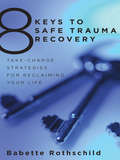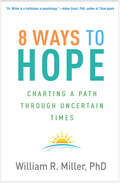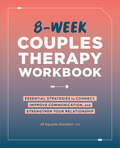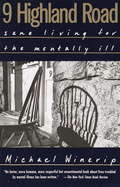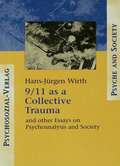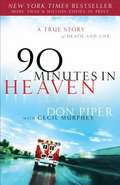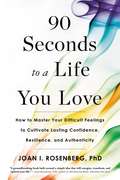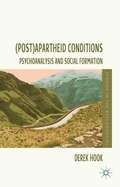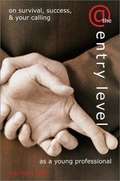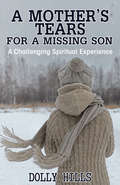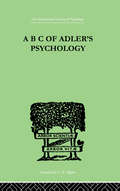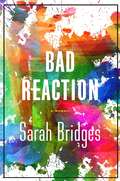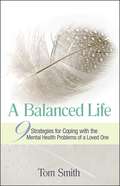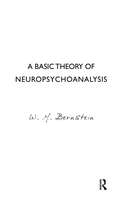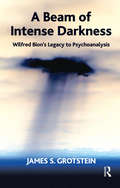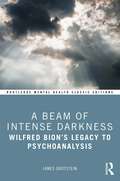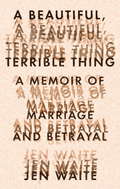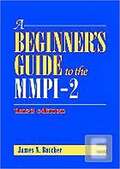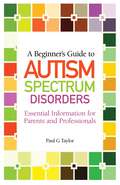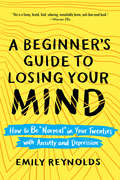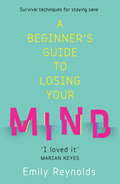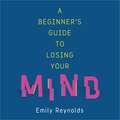- Table View
- List View
8 Keys to Safe Trauma Recovery: Take-Charge Strategies to Empower Your Healing (8 Keys to Mental Health)
by Babette RothschildSafe and effective principles and strategies for recovery from trauma.<P><P> Trauma recovery is tricky; however, there are several key principles that can help make the process safe and effective. This book gives self help readers, therapy clients, and therapists alike the skills to understand and implement eight keys to successful trauma healing: mindful identification of what is helpful, recognizing survival, having the option to not remember, creating a supportive inner dialogue, forgiving not being able to stop the trauma, understanding and sharing shame, finding your own recovery pace; mobilizing your body, and helping others.<P> This is not another book promoting a new method or type of treatment; rather, it is a necessary adjunct to self-help and professional recovery programs. After reading this book, readers will be able to recognize their own individual needs and evaluate whether those needs are being met. They will have the tools necessary to put themselves in the drivers seat, navigating their own safe road to recovery.
8 Ways to Hope: Charting a Path through Uncertain Times
by William R. MillerYou can't take a leap of faith without it. It lets you dream of a brighter future. And in a world worn down by political conflict, climate change, war, and other perils, many worry about losing it. Pioneering psychologist William R. Miller takes a fresh look at hope and its transformative potential in this concise, compassionate book. Explore eight different facets of hope that enable people to clarify their goals, envision new possibilities, find purpose, enhance motivation, and persevere against tough odds. Dr. Miller guides you to reflect on your own relationship to hope and how you can cultivate it. Vivid personal stories, historical examples, and cutting-edge scientific findings reveal how choosing hope over fear can be a powerful force for change.
8-Week Couples Therapy Workbook: Essential Strategies to Connect, Improve Communication, and Strengthen Your Relationship
by Jill Squyres Groubert PhDSpend the next 8 weeks overcoming relationship obstacles and building a stronger connectionEvery relationship has challenges, but learning to listen, communicate, and get in sync can help you move through the tough times quicker and spend more time enjoying each other. The 8 Week Couples Therapy Workbook is full of expert guidance and simple exercises that show you and your partner how to work through anything that comes up, so your relationship stays healthy, strong, and happy.What's going on?—This therapy book includes straightforward explanations of how intimacy and interpersonal connections work, the ways they can break down, and how to get them back on track.Advice that works—Find techniques from a licensed psychologist that are rooted in communication therapy, but simple to understand and implement in your daily lives.An 8-week timeline—These activities are spread out over 8 weeks, so it's easy to find time for them in your busy schedules, and to get in the habit of using your new skills in the long-term.Every aspect of life together—Focus on a different theme each week: communication, intimacy, conflict, money matters, social styles, relationship patterns, values, and love languages.Pick up this relationship workbook for couples today and create a better future together!
80 Menschen – 80 Storys: Inspirierende Berufswege mit Denkanstößen und Tipps – nicht nur für junge Frauen
by Marie-Luise KisslerOb Bundestagsabgeordnete, Tattoo-Künstlerin, Chocolatier oder Schornsteinfegerin – das Leben ist ein Kaleidoskop von Möglichkeiten. Dieses Buch zeigt 80 Persönlichkeiten und inspiriert junge Menschen ihren eigenen, einzigartigen Berufsweg zu verwirklichen.Die Interviews enthalten exklusive Ratschläge von 80 erfolgreichen Role Models - sie erzählen aus ihrem Leben, nennen berufliche Erfolge und Fehler beim Namen und verraten persönliche Tipps und Tricks, wie junge Frauen zwischen Selbst- und Fremdanspruch ihre eigene Berufung finden. Die 80 Interviewpartnerinnen sind: Trixie Bannert – Claudia Bechstein – Sandra Berndt – Marco Boos – Sylvia Borcherding – Katja Borghaus – Julia Börs – Julia Bösch – Andrea Bruckner – Ilka Brühl – Linda Burchhardt – Frank Buschmann – Valentina Daiber – Angela De Giacomo - Vanessa Didam – Sabine U. Dietrich – Özlem Doger-Herter – Anja Dorny – Julia Dorny – Katharina Fankidejski – Emilia Fehse – Bettina Fetzer – Nicolette Fountaris – Marie-Christin Ghanbari – Kirsten Heike Giering – Saskia Stella Gleitsmann – Laura Große – Laura Halfas – Ilka Hartmann – Caitlin Hennen – Josephine Henning – Verena Herb – Ulrike Hiller – Nicole Hölscher – Elke Holst – Bettina Hueske – Petra Justenhoven – Lise-Christine Kobla Mendama – Hatice Koca – Carmen Köhler – Anne Kozlowski – Dirk Kreuter – Toma Kubiliute – Kevin Kugel – Ricarda Lang – Meriem Lebdiri – Monika Maria Lehmann – Elisabeth Lepique – Susanne Liebermann – Chenchao Liu – Dubravka Maljevic – Thomas Mickeleit – Lan Anh Nguyen – Martina Niemann – Laura Nolte – Bettina Pauck – Susanne Pfab – Astrid Quentell – Angelique Renkhoff-Mücke – Johanna Röh – Colette Rückert-Hennen – Nicole Schilling – Sabine Schmittroth – Laura Schönberger – Gabriele Sons – Britta Steffen – Julian F. M. Stoeckel – Sarah Süß – Martyna Trajdos – Marie-Christine Trappen – Anastasia Umrik – Lisa Unruh – Katja von Doren – Linda van Rennings – Christina Virzí – Marion A. Weissenberger-Eibl – Hiltrud Dorothea Werner – Alina Wichmann – Nicola Winter – Laura Zieger.
9 Highland Road
by Michael WineripBefore Julie Callahan came to the house at 9 Highland Road in Glen Cove, New York, she had spent a good part of her young life in mental hospitals, her mental and emotional coherence nearly destroyed by a childhood of sexual abuse. Fred Grasso, a schizophrenic, had lived in a filthy single-room occupancy hotel. At 9 Highland Road they and their housemates were given a decent alternative to lives in institutions or in the streets. It was a place in which some even found the chance to get better.This perfectly observed and passionately imagined book takes us inside one of the supervised group homes that, in an age of shrinking state budgets and psychotropic drugs, have emerged as the backbone of America's mental health system. As it follows the progress and setbacks of residents, their families, and counselors and notes the embittered resistance their presence initially aroused in the neighborhood, 9 Highland Road succeeds in opening the locked world of mental illness. It does so with an empathy and insight that will change forever the way we understand and act in relation to that world.
9/11 as a Collective Trauma: And Other Essays on Psychoanalysis and Society
by Hans-Juergen WirthHans Juergen Wirth, a leading German psychoanalyst and editor of the journal Psychosozial, brings cultural breadth, historical perspective, and analytic astuteness to bear in considering the "collective trauma" of 9/11. His meditation, which brings into its compass the psychic structure of suicide bombers and the psycho-political causes and consequences of the Iraq war, is especially insightful in considering the psychological meaning of 9/11 for the world outside the U.S. In complementary forays into psyche and politics, Wirth explores the relationship of xenophobia and violence; the story of Jewish analysts who emigrated from Nazi Germany to the United States; the idea of man in psychoanalysis; and the family dynamics that sustain the AIDS phobia. These wonderfully illuminating essays, both cautionary and constructive, show how clinical experience with the unconscious processes of violence, traumatization, and destructiveness can be foundational to new political strategies for dealing with collective violence.
90 Minutes in Heaven
by Cecil Murphey Don PiperAfter colliding with a semi-truck, Don Piper died and went to heaven. Ninety minutes later he returned to life on earth. After years of silence, he is now sharing his life-changing story.
90 Seconds to a Life You Love: How to Master Your Difficult Feelings to Cultivate Lasting Confidence, Resilience, and Authenticity
by Joan I. RosenbergHow to manage your most difficult feelings and building the emotional strength you need to create the life of your dreams.Sadness, shame, helplessness, anger, embarrassment, disappointment, frustration, and vulnerability. In 30 years as a practicing psychologist, Dr. Joan Rosenberg has found that what most often blocks people from success and feeling capable in life is the inability to experience, move through, and handle these 8 unpleasant feelings. Knowing how to deal with intense, overwhelming, or uncomfortable feelings is essential to building confidence, emotional strength, and resilience. Yet when we distract or disconnect from these feelings, we move away from confidence, health, and our desired pursuits, ultimately undermining our ability to fully realize our ambitions.Neuroscientists suggest that the biological lifespan of a feeling, often known first through bodily sensations, lasts approximately 90 seconds. Dr. Rosenberg teaches readers to be aware, consciously lean into, and balance these unpleasant emotions by riding one or more 90-second waves of the bodily sensations. By staying present to these 8 feelings, we cultivate the confidence that we can handle life's challenges and the deep sense we can pursue whatever we want.Combining more than three decades of clinical experience with aspects of clinical psychology, mindfulness, and neuroscience research, 90 Seconds to a Life You Love is a strategic and practical guide on building core emotional strength, reducing anxiety, and developing the confidence you need to create a life of your design -- a life you love.
: Psychoanalysis and Social Formation (Studies in the Psychosocial)
by Derek Hook(Post)Apartheid Conditions.
@ The Entry Level: On Survival, Success, & Your Calling As A Young Professional
by Michael BallCash, Coercion, Cons, Whatever it takes to get unsuspecting grads to sign that offer letter, Corporate America is game. Because once it's finally plain that the entry level, in fact, is a hellish and demeaning place of grunt-work, brown-nosing, and mental drool, the ink's already dry and the newbies in bed. Way in, what with the pressure to keep post-college resumes stocked with "respectable" Fortune 500 firms. Instead, most early-stage workers end burying their dreams underneath their paycheck, suffering quietly through the frustration, depression, and thoughts of beating their manager with a stick. No more. @ The Entry Level is designed to lead you through the psychologies, philosophies, and strategies for succeeding in business' basement, but with the single-minded purpose of finding the work you were made to do. It's the first book ever to dispel the myths, whisper the tricks, and supply the tools to help you as a young professional: *Manage the transition from college to work *Negotiate the Entry Level Rite of Passage Navigate office politics and build your personal brand *Earn the promotion or transfer with the right fit *Locate a sturdy work - life balance *Uncover your values to make intelligent, healthy career decisions *Gain the courage to follow your passion and find your calling Further taking a hard look at the seduction of money, the silliness of company loyalty, and the side-effects of waiting until midlife to figure out what your job should mean, this is the indispensable guide for career freshmen seeking a deeper, richer working life. And for those who just need to keep breathing. Michael Ball is the founder and CEO of Career Freshman Company, an organization dedicated to helping young professionals discover success, passion, and fulfillment in their work. A disillusioned Big Five (now Four) consulting veteran and Silicon Valley startup survivor, he's found his own calling as an author, speaker, and career coach to college students and corporate grunts. He lives in Los Angeles.
A Mother’s Tears for a Missing Son: A Challenging Spiritual Experience
by Dolly HillsA Mother's Tears for a Missing Son is a first hand account of my personal journey when my son mysteriously disappears in remote Alaska wilderness. It describes the adventures of a free spirited young man who lived on the edge of life and whose choices brought him and his family to an unforeseen outcome of bizarre twists and turns. The expansiveness of the environment offers a setting where the unexpected can happen at a moment's notice. A Mother's Tears for a Missing Son is a story of hope, faith, and trust, with a determination to never give up. I struggled to maintain endurance and courage, through an intense time of grief. As the story unravels, I realized the many opportunities for growth as I navigated my way through a devastating experience with resilience and came to understand the need to fully embrace and process the grief – while enduring personal tragedy. Ultimately, a sense of peace predominates.
A B C Of Adler'S Psychology (International Library Of Psychology Ser.)
by Mairet, PhilippeFirst Published in 1999. Routledge is an imprint of Taylor & Francis, an informa company.
A Bad Reaction: A Memoir
by Sarah BridgesA mother’s story of raising an autistic son, navigating the vaccine court, and confronting the widespread denial of a link between vaccines and autism.At four months old, Porter Bridges went in for his well-baby checkup and received an array of vaccines. That night he spiked a 105-degree fever and had a two-hour grand mal seizure. He was rushed to the hospital where doctors struggled to stabilize him while his family paced the halls waiting to hear if he was conscious. Though no one could know it at the time, Porter’s hospitalization marked the start of a terrifying and tragic decline in his health and the health of his family. And while the effects of Porter’s reaction would take years to fully develop, the cause was never in doubt-Porter’s hospital record reads, "Brain injury from pertussis vaccine.”Cognitive dissonance is the psychology term for that queasy feeling we get when things just don’t line up. Here are the facts: Porter is a healthy infant one moment and has brain damage the next. The CDC says vaccines are always safe, but the National Vaccine Injury Compensation Program awards Porter’s family millions of dollars to pay for his pertussis injury. The CDC sends a press release saying vaccines never cause autism. That afternoon, government funds pay for Porter’s autism therapy. He goes three times a week.A Bad Reaction is a personal journey-sometimes painful, sometimes funny. It confronts the dissonance between what the government tells us about the vaccine-autism link and its secret payments compensating the vaccine-injured. It tackles broader issues such as individual versus government responsibility, the conflicts of interest in vaccination-safety research, and the balance of individual and collective good. Vaccines hold the special distinction of being the only mandated drugs all children receive and have saved innumerable lives. They also have safety risks. This book is about one of those "negative outcomes.” His name is Porter.Skyhorse Publishing, along with our Arcade, Good Books, Sports Publishing, and Yucca imprints, is proud to publish a broad range of biographies, autobiographies, and memoirs. Our list includes biographies on well-known historical figures like Benjamin Franklin, Nelson Mandela, and Alexander Graham Bell, as well as villains from history, such as Heinrich Himmler, John Wayne Gacy, and O. J. Simpson. We have also published survivor stories of World War II, memoirs about overcoming adversity, first-hand tales of adventure, and much more. While not every title we publish becomes a New York Times bestseller or a national bestseller, we are committed to books on subjects that are sometimes overlooked and to authors whose work might not otherwise find a home.
A Balanced Life: Nine Strategies for Coping with the Mental Health Problems of a Loved One
by Tom SmithA practical, compassionate guide to building a supportive relationship with someone with a mental illness--while taking care of yourself.The ultimate goal of those with a mental disorder and the people who love them is balance: emotional, mental, spiritual, and behavioral. Yet, living with and responding to a mentally ill person often leads to the chaos of a relationship where the rules change, the dynamics are volatile, and the expectations are unanchored. In readable, down-to-earth prose, A Balance Life teaches family and friends what they can expect from those they love who have mental health problems. It offers nine clear-cut strategies for implementing a plan to support them, including how to:assist a loved one in developing healthy self-esteemaccept mental illness as a fact of lifeidentify early warning signs that precede a more difficult phase of the illnesscreate a supportive network of family and friendsEach strategy is illustrated by inspiring stories of real people who have put the principles into practice, and is followed by key questions that ask to ponder their own situations. This is the to bringing order to chaos, providing a framework for reactions to the person who has a mental illness. It clarifies expectations and offers advice and encouragement.Tom Smith is the cofounder of the Karla Smith Foundation, which supports parents and loved ones of mentally ill people. He is author of several articles and books, including God on the Job and Alive in the Spirit."A unique blend of inspiration, compassion, and practical advice, every person coming to grips with the mental health problems of a loved one deserves to hear the message of hope, love, and faith infused within this book." Kim T. Mueser, Ph.D., co-author of The Family Intervention Guide to Mental Illness"Effective, practical strategies for families and friends of people who struggle with mental illness. Each chapter is punctuated by real stories of hope, as well as questions for discussion or personal reflection. A handy, useful toolkit." Herbert E Mandell, M.D., National Medical Director of Kids Peace"An invaluable resource. I wish my own loved ones had had it sooner, and I'll be sharing it with them now. Highly recommended." Marya Hornbacher, author of Madness: A Bipolar Life
A Basic Theory of Neuropsychoanalysis
by W.M. BernsteinThis book introduces a theoretical framework for studying the mind. Specifically, an attempt is made to frame ideas from psychoanalysis and cognitive-social psychology so that they can be taken readily into a realm of neurobiology. Psychoanalytic Theory still represents a very comprehensive theory of the human mind. It includes cognitive, emotional and behavioral variables, plus the idea of unconscious mental operations. The 'pleasure principle and 'repetition compulsion' were Freud's most general concepts of mental functioning. These concepts are renovated to get them "on the same page" with ideas from social cognition and neurobiology.
A Battle Plan for Supporting Military Families: Lessons for the Leaders of Tomorrow (Risk and Resilience in Military and Veteran Families)
by David S. Riggs Linda Hughes-Kirchubel Shelley MacDermid WadsworthThis unique reference integrates knowledge culled from fifteen years of U. S. deployments to create an action plan for supporting military and veteran families during future conflicts. Its innovative ideas stretch beyond designated governmental agencies (e. g. , Department of Defense, VA) to include participation from, and possible collaborations with, the business/corporate, academic, advocacy, and philanthropic sectors. Contributors identify ongoing and emerging issues affecting military and veteran families and recommend specific strategies toward expanding and enhancing current programs and policy. This proactive agenda also outlines new directions for mobilizing the research community, featuring strategies for addressing institutional challenges and improving access to critical data. Included in the coverage: Lessons learned inside the Pentagon. Merging reintegration streams for veterans and military families. The unique role of professional associations in assisting military families: a case study. Philanthropy for military and veteran families: challenges past, recommendations for tomorrow. Rules of engagement: media coverage of military families during war. Designing and implementing strategic research studies to support military families. A Battle Plan for Supporting Military Families is of immediate usefulness to leaders, professionals, and future professionals in interdisciplinary academic, governmental, advocacy, and philanthropic areas of focus interested in the theoretical, practical, and real-life concerns and needs of military-affiliated families.
A Beam of Intense Darkness: Wilfred Bion's Legacy to Psychoanalysis
by James S. GrotsteinThe author surveys Bion's publications and elaborates on his key contributions in depth while also critiquing them. The scope of this work is to synopsize, synthesize, and extend Bion's works in a reader-friendly manner. The book presents his legacy - his most important ideas for psychoanalysis. These ideas need to be known by the mental health profession at large. This work highlights and defines the broader and deeper implications of his works.It presents his ideas faithfully and also uses his ideas as "launching pads" for the author's conjectures about where his ideas point.
A Beam of Intense Darkness: Wilfred Bion's Legacy to Psychoanalysis (Routledge Mental Health Classic Editions)
by James S. GrotsteinWritten by pioneering analyst and creative thinker, James Grotstein, A Beam of Intense Darkness offers a thorough overview and illuminating insight into the often-complex work of W. R. Bion. This psychoanalytic classic sees Grotstein introduce over 30 key Bionian theories, comprehensively explaining them to the reader before offering his own insight and commentary. Grotstein first encountered Bion as his analysand and, later, as his friend. This book offers a level of insight only possible through such a close relationship, and offers a dialogue between Bion and Grotstein as they delve into the inner workings of the human psyche. Throughout, Grotstein offers his own original thoughts on topics such as projective transidentification, transcendent position and the truth drive. With a new introduction from Nicola Abel-Hirsch, this book is an essential read for anyone interested in Bion’s work and legacy.
A Beautiful, Terrible Thing: A Memoir of Marriage and Betrayal
by Jen Waite“Like Big Little Lies, A Beautiful Terrible Thing is a startling reminder that fairy tales aren’t real. A master class in suspenseful storytelling, Jen Waite recounts the lies, betrayals, and infidelity she endured with unrestrained honesty and deft candor. I couldn’t turn away.”—Jillian Lauren, New York Times bestselling author of Some Girls: My Life in a Harem and Everything You Ever WantedWhat do you do when you discover that the person you've built your life around never existed? When "it could never happen to me" does happen to you?These are the questions facing Jen Waite when she begins to realize that her loving husband—the father of her infant daughter, her best friend, the love of her life—fits the textbook definition of psychopath. In a raw, first-person account, Waite recounts each heartbreaking discovery, every life-destroying lie, and reveals what happens once the dust finally settles on her demolished marriage.After a disturbing email sparks Waite's suspicion that her husband is having an affair, she tries to uncover the truth and rebuild trust in her marriage. Instead, she finds more lies, infidelity, and betrayal than she could have imagined. Waite obsessively analyzes her relationship, trying to find a single moment from the last five years that isn't part of the long-con of lies and manipulation. With a dual-timeline narrative structure, we see Waite's romance bud, bloom, and wither simultaneously, making the heartbreak and disbelief even more affecting.
A Beginner's Guide To The Mmpi-2
by James Neal ButcherIn clear, accessible language, this book introduces readers to the Minnesota Multiphasic Personality Inventory-2 (MMPI-2), the most widely researched and broadly used personality assessment instrument. Several updates have been made since the previous edition of this popular book, including new interpretive information, new areas for application, and—most importantly—a new chapter on the MMPI-2 Restructured Form (MMPI-2-RF), a separate short instrument that beginners may confuse with the MMPI-2. Case studies are used to illustrate major concepts.
A Beginner's Guide to Autism Spectrum Disorders
by Paul G. TaylorWhat is Autism Spectrum Disorder? What does a diagnosis of ASD mean for the child and for you? How can you learn to fully understand behaviours common to ASD and help the child grow and prosper?This short introduction is an ideal starting point for anyone encountering ASD for the first time. The book covers all of the essential information needed to ground an understanding of the condition and offers effective practical strategies for assisting children who are living with ASD. It advocates putting aside conventional thinking and considering things from a different perspective - the way that the child with ASD sees the world. This concise and straight-talking guide to ASD will ensure parents, carers, teachers and other professionals feel confident, informed and able to cope with the road ahead.
A Beginner's Guide to Losing Your Mind: How to Be "Normal" in Your Twenties with Anxiety and Depression
by Emily ReynoldsYour twenties can be isolating, infuriating and painful - but how do you stay healthy and realistic when you're also dealing with depression, mania, or anxiety? Emily Reynolds's A Beginner's Guide to Losing Your Mind explores the unique challenges, including: How to deal with pressure at school and college Tips for dating when you are mentally ill (and what to expect when you're on the other side) Handling self-harm and suicidal thoughts Advice for your family and friends Learning how to navigate the internet and the online community Advice on diagnosis, treatment, and maintaining your mental healthA blackly funny, deeply compassionate, and extremely practical book, A Beginner's Guide to Losing Your Mind is all at once the author's personal account of what it's like to live with mental illness, a guide to dealing with and understanding it, and a companion to make the journey feel a little less lonely.
A Beginner's Guide to Losing Your Mind: My road to staying sane, and how to navigate yours
by Emily Reynolds'A really clear, funny, useful guide to mental health.' Keith Stuart, author of A Boy Made of Blocks'Warm, welcoming and wise.' Red magazine'This is a funny, brutal, kind, sobering, remarkably brave and clear-eyed book. Compelling and necessary.' Warren Ellis, author of Normal, Gun Machine and Transmetropolitan'Emily Reynolds is a brilliant writer on an important subject. And hilarious too.' Adam Rutherford'This book isn't just brilliantly written and welcoming in its tone; it's honest, practical and important. It is going to help so many people - including friends and family who desperately want to help a loved one but don't know how.' Emma Gannon, author of Ctrl Alt DeleteEmily Reynolds is mad. After years of trying - and failing - to cope with her symptoms, she was finally diagnosed as bipolar in her early twenties. Since then Emily has been on a mission to find the best way to live with her illness, and now she wants to share that knowledge with you. Living with mental illness is isolating, infuriating and painful - but also very boring and, sometimes, kind of gross. A Beginner's Guide to Losing Your Mind is a companion to make the journey feel a little less lonely. A Beginner's Guide to Losing Your Mind gives you tips on:How to deal with exam pressure at school and universityHow to date when you are mentally ill (and what to expect when you're on the other side) Navigating the internet and the online mental health communityHandling self-harm and suicidal thoughtsDiagnosis, treatment and maintaining your mental healthA blackly funny, deeply compassionate and extremely practical book, A Beginner's Guide to Losing Your Mind is a candid exploration of mental illness that is both a personal account of what it's like to live with mental illness and a guide to dealing with and understanding it.
A Beginner's Guide to Losing Your Mind: My road to staying sane, and how to navigate yours
by Emily Reynolds'A really clear, funny, useful guide to mental health.' Keith Stuart, author of A Boy Made of Blocks'Warm, welcoming and wise.' Red magazine'This is a funny, brutal, kind, sobering, remarkably brave and clear-eyed book. Compelling and necessary.' Warren Ellis, author of Normal, Gun Machine and Transmetropolitan'Emily Reynolds is a brilliant writer on an important subject. And hilarious too.' Adam Rutherford'This book isn't just brilliantly written and welcoming in its tone; it's honest, practical and important. It is going to help so many people - including friends and family who desperately want to help a loved one but don't know how.' Emma Gannon, author of Ctrl Alt DeleteEmily Reynolds is mad. After years of trying - and failing - to cope with her symptoms, she was finally diagnosed as bipolar in her early twenties. Since then Emily has been on a mission to find the best way to live with her illness, and now she wants to share that knowledge with you. Living with mental illness is isolating, infuriating and painful - but also very boring and, sometimes, kind of gross. A Beginner's Guide to Losing Your Mind is a companion to make the journey feel a little less lonely. A Beginner's Guide to Losing Your Mind gives you tips on:How to deal with exam pressure at school and universityHow to date when you are mentally ill (and what to expect when you're on the other side) Navigating the internet and the online mental health communityHandling self-harm and suicidal thoughtsDiagnosis, treatment and maintaining your mental healthA blackly funny, deeply compassionate and extremely practical book, A Beginner's Guide to Losing Your Mind is a candid exploration of mental illness that is both a personal account of what it's like to live with mental illness and a guide to dealing with and understanding it.
A Beginner's Guide to Losing Your Mind: My road to staying sane, and how to navigate yours
by Emily ReynoldsA funny and moving memoir from a girl with bipolar, including down-to-earth, practical advice for young people and those who love them.Emily Reynolds is mad. After years of trying - and failing - to cope with her symptoms, she was finally diagnosed as bipolar in her early twenties. Since then Emily has been on a mission to find the best way to live with her illness, and now she wants to share that knowledge with you. Living with mental illness is isolating, infuriating and painful - but also very boring and, sometimes, kind of gross. A Beginner's Guide to Losing Your Mind is a companion to make the journey feel a little less lonely. A Beginner's Guide to Losing Your Mind offers advice on:How to deal with exam pressure at school and universityHandling self-harm and suicidal thoughtsAdvice for your family and friends Tips for dating when you are mentally ill (and what to expect when you're on the other side) Learning how to navigate the internet and the online mental health communityAdvice on diagnosis, treatment and maintaining your mental healthA blackly funny, deeply compassionate and extremely practical book, A Beginner's Guide to Losing Your Mind is a candid exploration of mental illness that is both a personal account of what it's like to live with mental illness and a guide to dealing with and understanding it.(P)2017 Hodder & Stoughton
